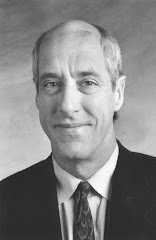He's been so busy lately, helicoptering to every corner of the state to deliver jumbo-sized ceremonial checks to parish officials, to pin medals on veterans and to attend church services that Gov. Bobby Jindal must have missed that, back at the Capitol, someone else was leading the charge to cut state government down to size.
Treasurer John Kennedy is merely the chairman of a subcommittee of an advisory panel for streamlining government, but he grasped its publicity potential and has stolen the march on not one but both blue-ribbon commissions on budget-cutting and restructuring.
Kennedy has been traveling the state too, not as deeply into the piney woods as Jindal, but rather to Chamber of Commerce luncheons and editorial boards to promote his big ideas for change, from a 15,000 reduction in state employees to a single board of higher education.
Going strictly by appearances, Kennedy is looking like a governor; Jindal, a lieutenant governor.
Appearances deceive, of course. The governor does focus intently on economic development opportunities. And his staff has been actively engaged with both commissions, particularly the Postsecondary Education Review Board, exploring how to make a big idea like a single college management board actually work.
But with Kennedy capturing the limelight by default, Jindal may have felt the need to re-assert his role of budget-cutter-in-chief.
If so, he chose a curious way to go about it, by giving both commissions specific dollar-amount goals for budget reduction recommendations: $802 million from the streamlining commission and $146 million from the college board.
Nothing wrong with defining the challenge and setting goals. He could have done that six weeks ago when these groups first met. Instead, at that time, he urged panel members to be bold and think outside the box.
His job, it goes without saying, is to deal with the box as it is. The streamlining commission should be free to come up with creative, innovative suggestions that, if any of them worked, could save big money. But it is the governor's responsibility to meet the projected $948 million deficit when he presents the executive budget next March. It would be interesting, also comforting, to hear what specific ideas he has come up with already.
When it gets down to the reality of writing a balanced budget, Jindal has his own streamlining commission. It's called the Division of Administration. Commissioner Angele Davis, who sits on the streamlining panel, probably already has considered most of the recommendations that will come up. She gave an impressive presentation on what she's doing now to control costs throughout state agencies, such as a moratorium on buying cars. It didn't come close to $802 million, but it was a start.
That's more than the education board has accomplished. Comprised mostly of out-of-state experts with their own busy schedules, that commission has met only once, has yet to elect a chairman or set a direction for what it wants to get done.
It's unrealistic to expect the educators to make serious recommendations on cutting 15 percent of state spending for higher education. They would better serve the state by sticking to their original mission to recommend broad, even sweeping changes in how management systems are structured. Once a new plan is in place, it would be possible--more than now--to reduce costs through the merger of programs, even campuses.
The big idea, a single board, is not a new one--and Kennedy is out there running with it already. Board members and the governor's staff, especially executive counsel Tim Barfield, have been having deep discussions about what kind of new regime could replace the current five boards.
Such a far-reaching, controversial proposal--requiring constitutional change--is more effectively advanced after the vetting and seal of approval of a blue-ribbon commission of outside experts.
If the governor gets that much out of the education board, he shouldn't be disappointed if it doesn't also tell him how to balance his higher education budget. It will have served a higher purpose.
At that point, the governor can put away his poster checks and medals and travel the state with a game-changing big idea to discuss, with the stage all to himself.
Saturday, October 3, 2009
Kennedy Steals the March on Government Change
Subscribe to:
Post Comments (Atom)

No comments:
Post a Comment